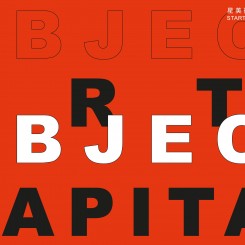Start Museum 1st International Forum of Thought launches in London
[Press Release]
Co-organized by Start Museum Shanghai and Goldsmiths College, University of London, the ‘Forum for International Thought’ was launched on 2nd December 2016, at Goldsmiths, London. The Forum is a ten year project for the international debate of thought. An annual conference will be held by Goldsmiths College and Start Museum Shanghai alternately in London and Shanghai. This Shanghai Start Museum – London Goldsmiths axis brings together a constellation of artists, philosophers, social thinkers, cultural critics, architects, and public intellectuals to address a range of thematized questions around phenomena of space, time, movement and complexity in today’s post-liberal global (dis)order. The forum aims to provide an open platform for thought exchange and discussion, as an attempt to present the challenging relationship between academic reseaerch and art-making.
The main theme for this year is ‘Object of Art, Object of Capital’. Twelve researchers, including French philosopher François Jullien, British cultural theorist Scott Lash, Chinese philosopher Wang Min’an, French philosopher Eric Alliez, Chinese artist Cao Fei, gathered in London from Paris, Berlin, New York, Tokyo, Hong Kong, and Beijing. From diverse pespectives, this two day conference centred on the connection and contradictions between objects of art and objects of capital, which then triggered a series of reflections on the influence of art and capital on culture and society: If the time of being is finite and human, that what is the time of capital? Is the time of capital infinite and boundless? Is it Karl Marx’s time of ever-expanding substance? Is it a time less of the subject than of the object? What about capital’s space? Is it a space of intensities? Who are the included and who the excluded from capital’s space? In this post-liberal age of Trump and Brexit a space of de-globalization? Of walls? Is there a difference between these objects of capital and art-objects? Does capitalism’s increasingly ‘spectral’ nature give us the bad infinity of apocalyptic art? Does it give us an art that perhaps is at the same time boundless and hermetic?
When globalization and capitalism were exposed to their own intricacies, the challenges of the intellectual world follow one after another. The Brexit, the refugee crisis, the election of Trump, is just the characterization of a variety of political and cultural flux. In the midst of all this flux, with expectations and mission, this forum brings together theorists for ten years of sustained thought and discussion. The colaboration between Start Museum and Goldsmiths not only serves as a platform for idea exchange between China and the West, but also provides clues for thinking.
As said during the opening speech by Mr. He Juxing, the initiator of this forum and the founder of Start Museum: though from different places, it can seem as if we are all walking toward the same ruin. The world is collapsing. What should we adhere to and where to restart? Some people want to find peace and prosperity in old traditions. But it is how the ruin was created. What we could do is always limited. However, from the fundamental and methodological research, we might find hint and hope. Over the long history of humanity, the capacity to think has repeatedly saved us from crisis, yet simultaneously, thought deconstructs the person and attacks itself. Human society falls, rises, and survives within this circulation. The pursuit of intellectual and scientific advancement is full of risks, but always fun.
‘The Forum for International Thought’ is Start Museum’s second ‘knowledge structure’ project which will last over 10 years. Prior to this, the Art History Award, co-organized by the Start Museum and the Chinese Academy of Art, has been launched in June 2016 in Hangzhou. Some scholars suggest that this internal and external knowledge building works as an important part of Start Museum’s ‘unpredictable thinking’, which will undoubtedly provide an opportunity for contemporary artists for knowledge deconstruction and reconstruction.

